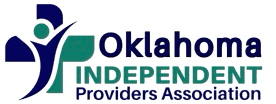All partners listed below are categorized as Revenue Opportunities and Expense Opportunities. Revenue Opportunities are vetted organizations that you can join to partner with Independent Providers and contract with Revenue Sharing programs specifically tailored for independent providers. These can include Clinically Integrated Networks, Accountable Care Organizations, Medicare Advantage Plans, etc. Expense Opportunities are where we have used the size of our IPA to negotiate costs down. Because of our size, we believe we can obtain the same economies of scale as the large health systems.
H.B. 1091 – New Law.
An Act relating to Medicaid; creating the Ensuring Access to Medicaid Act; recognizing certain statements; establishing conditions for Medicaid providers; requiring certain provisions for provider contracts entered into by the Oklahoma Health Care Authority; requiring certain time frames for claim processing; requiring timely authorizations for certain patients; requiring network contracts to be offered to certain providers; requiring certain provider payment rates; providing for credentialing and recredentialing; requiring certain fund disposition; providing for authorization requirements and time frames; repealing 56 O.S. 2011, Section 1010.2, which relates to definitions; repealing 56 O.S. 2011, Section 1010.3, which relates to establishment of the Oklahoma Medicaid Healthcare Options System; repealing 56 O.S. 2011, Section 1010.4, which relates to implementation of system; repealing 56 O.S. 2011, Section 1010.5, which relates to contract provisions; providing for codification; and providing an effective date.
Oklahoma Candor Act
Candor can be defined as “the quality of being open and honest.” This term has been adopted in health care to describe framework for addressing adverse medical incidents in a way that preserves the provider-patient relationship, allows for open communication, and supports improvements in patient safety. The focus on Candor emerged out of efforts by the Agency for Healthcare Research and Quality (AHRQ). AHRQ developed a toolkit that promoted a shift to an environment that encourages open, honest conversations with patients after adverse outcomes occur. The process is also designed to investigate and learn from what happened, to address the patients’ needs alongside providers’ needs, and to disseminate any lessons learned in order to improve future outcomes. Since then, the Candor framework has been utilized in various health care systems and demonstrated positive results. In addition, Candor-related legislation has been passed in Colorado, Massachusetts, Oregon, and Iowa. The patient does not give up their right to move forward with a suit but no discussions during the Candor process are admissible in court. Your medical malpractice insurance carrier is involved and will still pay for legal and indemnity costs. It may also avoid an NPDB reporting event.
Centralized Credentialing
The process to fill out applications, wait for health plan effective dates and hospital privileging is onerous, to say the least. All of these applications, sometimes as many as 40 per doc, are similar in nature. With the quality of technology, web apps, and blockchain algorithms, this process should be simplified. There is no reason a doctor shouldn’t be able to fill out a single application that applies to all. This would increase the doctor’s access to health plans, hospital privileges, and even licensure, not to mention the ongoing credentialing costs to maintain these relationships. It has been tried legislatively to accomplish this task but it has never materialized. We believe we can do it without legislation. By harnessing the size of the IPA, we believe we can negotiate these relationships and already have with most health plans through “delegated authority”. Next, we need to get the hospitals and surgery center on board.
Thank You To Our Legislative!



